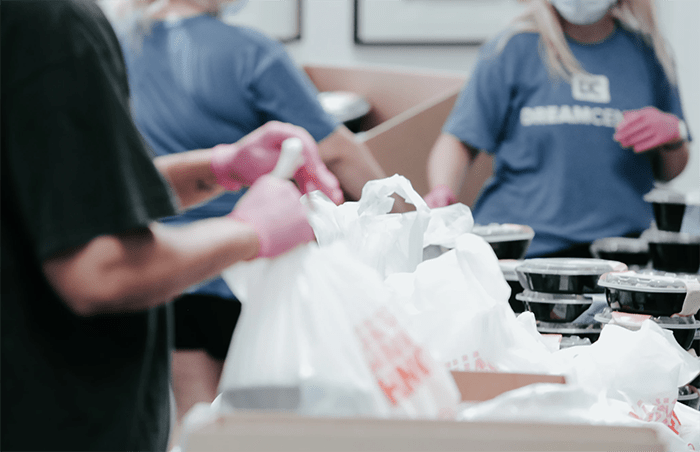DENVER, CO — When you look around Denver, it’s easy to see the effects the coronavirus has had on our way of life. What’s less visible is the number of people who are now worrying about having enough to eat.
Feeding America, the nation’s largest hunger-relief organization, says coronavirus-related economic crises could push the number of food-insecure Americans to 54 million by year’s end. That’s 17 million more Americans than those who were food insecure before the pandemic. For some, it’s a matter of running short on grocery money before the week is out and eating a lot of boxed pasta and rice dishes.
For others, food insecurity means real hunger.
In Denver, about 76,340 people were considered food insecure before the pandemic, according to Feeding America’s “Map the Meal Gap” interactive study.
Job loss and other economic crises associated with the coronavirus could push the rate of food insecurity in Denver to 16 percent by the end of the year.
Feeding America, whose 200 member food banks include Food Bank of the Rockies in Denver, reports both higher demand for services and more need for volunteer and donor support.
Some of the food pantries and other services available in Denver are:
- The Gathering Place Food Pantry, 1535 High Street – 303-996-9029
- HOPE Food Bank, 2024 N Clarkson Street – 303-589-3561
- Denver Inner City Parish, 1212 Mariposa Street – 303-629-0636
- Cope Boys & Girls Club, 808 Inca Street – 303-893-8214
- Metropolitan Community Church, 980 N Clarkson Street – 303-860-1819
- Campbell Chapel AME Church, 1500 E 22nd Avenue – 303-839-5058
Food insecurity is often thought of as a “poor people’s problem,” but not all people living in poverty are food insecure, and not all food-insecure people live in poverty.
Food insecurity is a complex issue sandwiched in with other systemic challenges, including poverty, low wages, affordable housing shortages, chronic and acute health problems, high medical costs, and social isolation.
“Our members are reporting that many of the people they’re serving have never sought food assistance before,” Kathryn Strickland, Feeding America’s chief network officer, told Patch. “Some people are reporting that people who formerly donated to food banks are now seeking assistance.”
